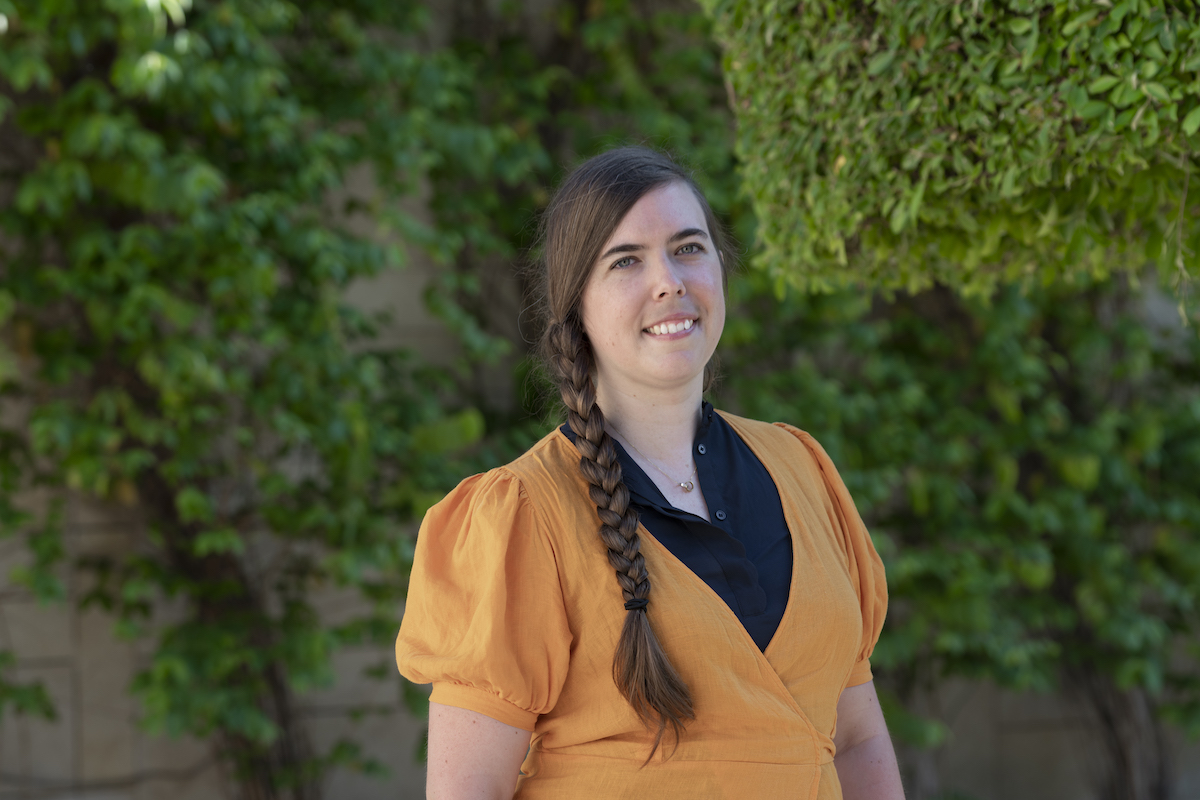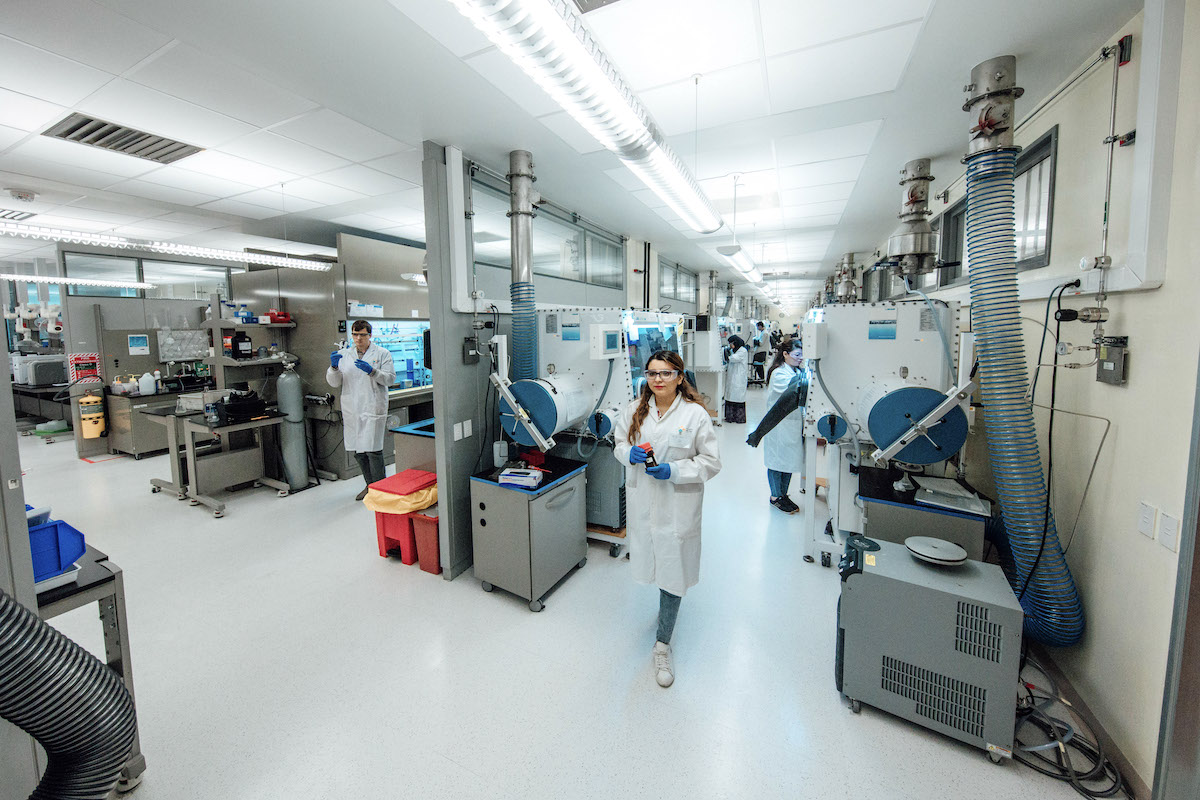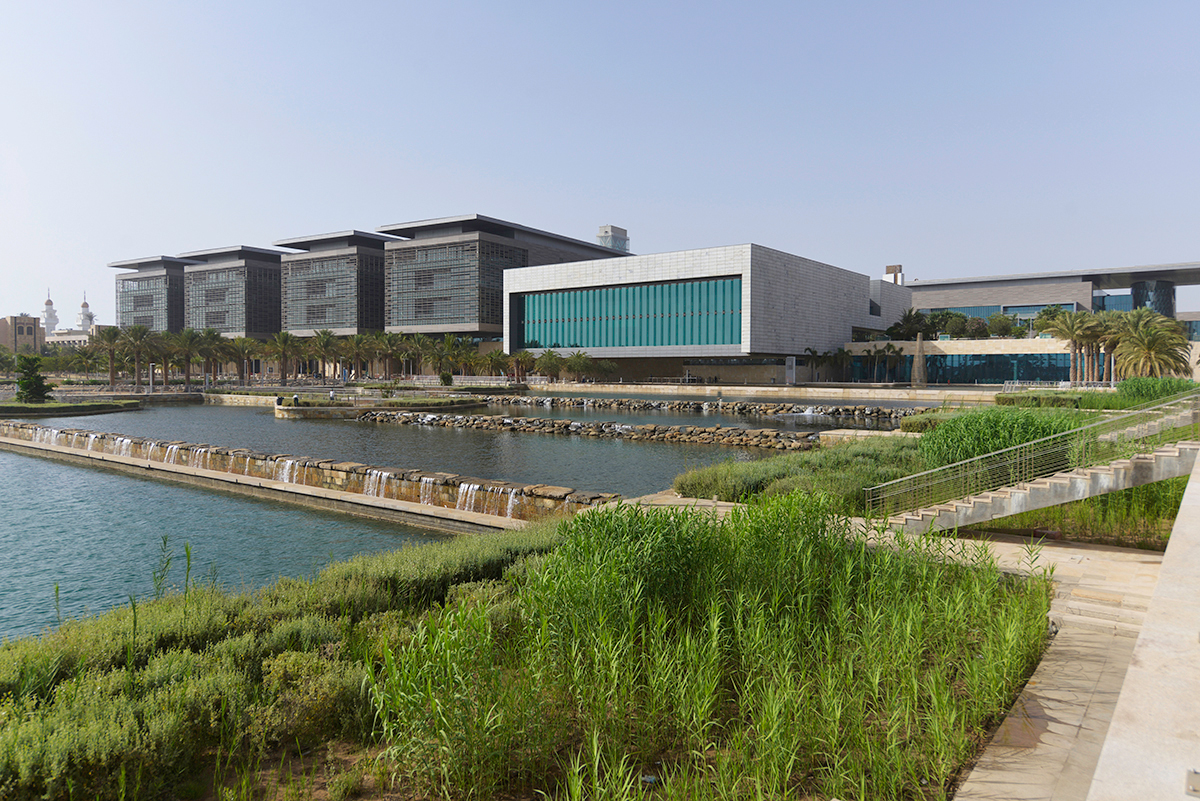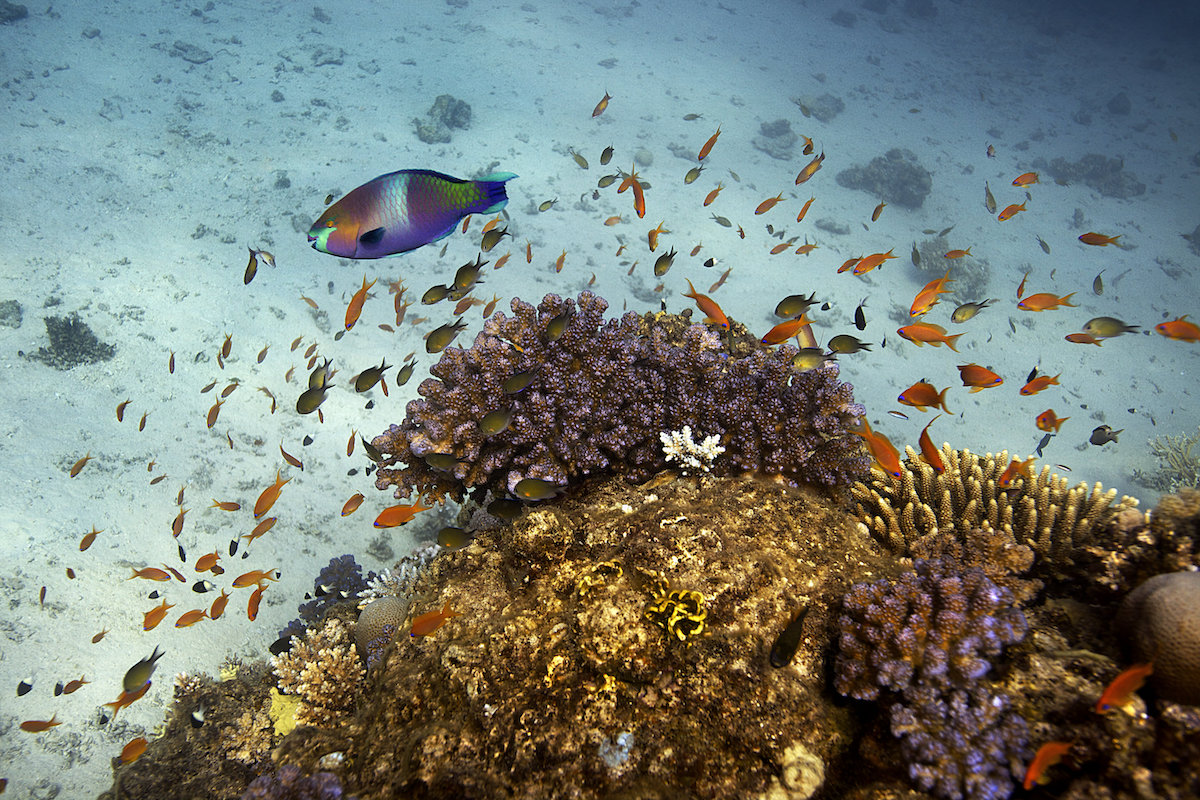Student Focus: Wiebke Wackerow

KAUST Ph.D. student Wiebke Wackerow came to the University in 2013 for an internship program and ended up staying on for her doctoral studies. Photo by Andrea Bachofen Echt.
-By A. Ortega, KAUST News
Wiebke Wackerow, a Ph.D. student in the University's Chemical Science program, came to KAUST from her native Germany in 2013 for an internship program. She was attracted by the University's multicultural nature and its excellent research environment.
"[My internship was for] three months in the Middle East—of course I was also coming [to KAUST] for an...adventure," she said.
Wackerow completed her bachelor's degree in chemistry from the University of Göttingen in 2011 and joined KAUST immediately after finishing her master's degree at the University of Heidelberg. During her University internship, her professor asked her to apply to KAUST for her Ph.D. studies.
"It took me some time to make [the] big decision [of] leaving Germany to do a Ph.D. far away from Europe," she explained. "Eventually, I signed the contract with KAUST and moved here. [Up till] today, I do not regret this decision."
Predicting chemical reactions
At KAUST, Wackerow works under the supervision of Distinguished Professor Jean-Marie Basset in the University's Catalysis Center. Her Ph.D. research focuses on hydrocarbon activation via catalysis, and she works on designing catalysts, substances that increase the rate of chemical reactions without consuming themselves during repetitive reaction cycles.

Student Wiebke Wackerow works in the KAUST Catalysis Center (pictured) for her Ph.D. studies, where she is supervised by Distinguished Professor Jean-Marie Basset. Photo by Anastasia Khrenova.
"Industrial catalysts are optimized by trial-and-error catalyst discovery, whereas in our lab we follow the approach of catalysis by design," she explained. "By creating single-site catalysts, we can spectroscopically investigate the exact reaction mechanism and tune the catalyst as required. With the insight about the catalysis mechanism, the knowledge can be transferred to improve commercial catalysts, and that has an immediate impact of the industrial applications out there in the real world."
Life as a KAUST student
Wackerow values the many advantages KAUST has given her for her career—these include participation in academic conferences and workshops outside of Saudi Arabia and the investment KAUST provides for students' personal growth.

The University's outstanding Core Labs facilities help Ph.D. student Wiebke Wackerow carry out her research in a quick and efficient manner. File photo.
"[During work hours,] I can take hands-on trainings for all devices and expand my technical expertise for all instruments related to my research," she added.
Knowledge and imagination: equally important
Wackerow noted that her time at the University has also nourished her personal life with experiences that continue to enhance her imagination.
"Imagination and knowledge have the same importance," she stated.

Wiebke Wackerow takes part in many activities on campus and in the Kingdom aside from pursuing her Ph.D. studies. She especially enjoys diving in and exploring the Red Sea. File photo.
"KAUST is a great place to develop new hobbies! [Compensate] your stress with other activities [and] learn how to recycle the negative energy into positive energy," she said. "[Develop] your character in multiple directions, [as] KAUST has a lot to offer in order to grow your personality."
The Kingdom has many places to pursue extracurricular activities, Wackerow noted, such as "[diving] trips and [off-road] adventures in the desert and mountains."

Saudi Arabia features many exciting places to discover for KAUST students, faculty and staff, such as the mountains of Taif (pictured here). Image courtesy of Shutterstock.
"It is amazing to have the opportunity to borrow one of the [University's underwater] cameras and go diving," she said. "There are always very good [photo] opportunities...in the Red Sea. With diving, I release a lot of my research stress—it calms me down and gives me a good connection with the environment. The Red Sea is so beautiful deep down."
Related stories:
- Student Focus: Ahmed Alabdulghani
- Student Focus: Bruno Antonio Pulido Ponce de León
- Student Focus: Abdullah Hamdi
- Student Focus: Maryam Alsufyani

